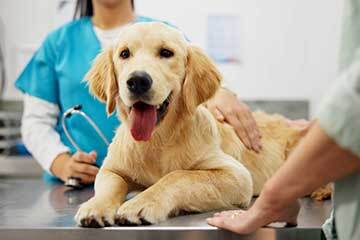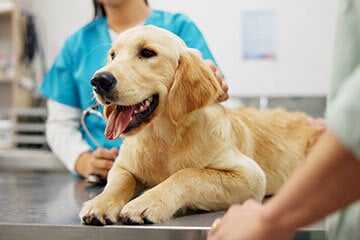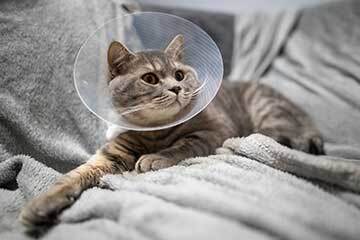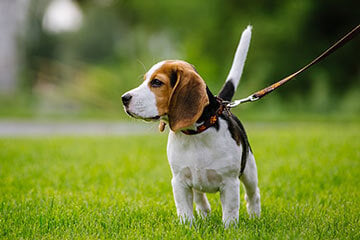Making sure your pet gets all the vaccinations they need is vital to keeping them fit and healthy.
Having your dog or cat regularly vaccinated can also make a difference to the cost of your pet insurance. Some pet insurance providers take this into account when working out your costs.
Most responsible pet owners consider vaccinations a routine part of looking after their pets, to ensure they’re properly protected. Here's what you need to know
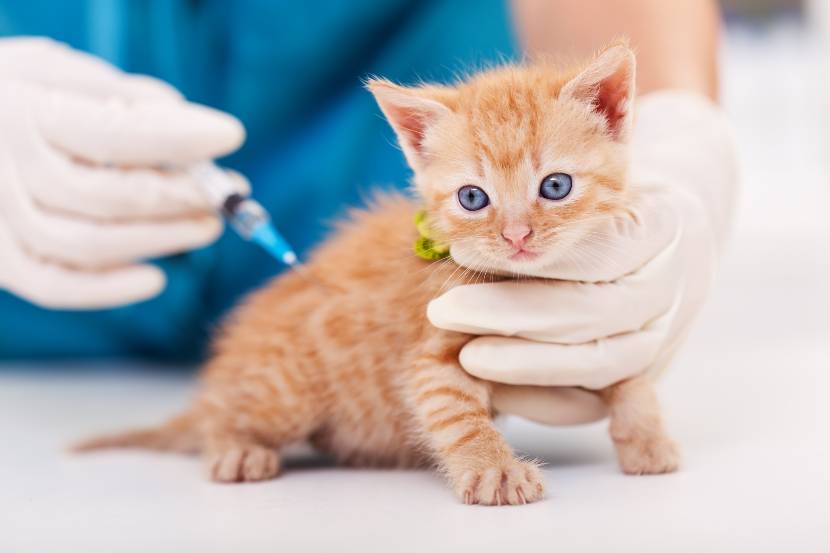
Why does my pet need to be vaccinated?
Vaccines are vital for protecting your cat or dog from contracting dangerous diseases and illnesses. Some of these can be infectious so you should always make sure you protect your pet.
Kittens and puppies are more at risk than adult pets because their immune systems haven’t yet had the chance to strengthen and develop. So they can be more prone to developing illnesses during the first few months.
Many pedigrees, whether a cat or a dog, should already have been vaccinated by the time they get to you. But it's always important to check what jabs your pet has had before you take it home.
It's a good idea to get advice from the vet so you know exactly what vaccines your pet may need. Your vet can help you set up a pet vaccination clinic schedule so you know when the booster injections are due.
Dog vaccinations
Vaccinations for dogs and puppies tend to include cover for a combination of diseases such as:
- Leptospirosis – this causes kidney and liver damage
- Distemper – causes serious neurological symptoms and can be fatal
- Parvovirus – causes acute vomiting and diarrhoea and is often fatal, especially in puppies
- Hepatitis – a liver infection that, although not common, can be serious
- Para-influenza virus – one of the viruses that causes kennel cough
- Bordetella – a bacterial infection that also causes kennel cough
- Rabies – your only need this if you're planning on taking your dog overseas
How much are dog and puppy vaccinations?
According to ManyPets, the average cost for primary dog vaccinations is £68, on average. This goes up to £78 if the vaccinations include protection against kennel cough.
Annual booster vaccinations for dogs cost £47, on average, going up to £64 if they include kennel cough.
Puppy vaccine schedule
Puppy vaccinations are needed at:
- Between 6 and 8 weeks old
- At 12 weeks
Make sure your new puppy doesn’t mix with other dogs or go on walks until they’re vaccinated. You can ask your vet about anything you're unsure of, or visit the People's Dispensary for Sick Animals (PDSA) website for more information.
Dog vaccination schedule
Adult dogs need a vaccination once a year, at least for Leptospirosis. A regular booster for kennel cough is also recommended.
Boosters for parvovirus and distemper are usually given every 3 years.
How long after the second puppy vaccination can they go out?
Your puppy can go out on walks with you a week after their second vaccination.
Take your puppy out too early, and there’s a risk they could be exposed to a virus that their body can’t yet handle.
Can I carry my puppy outside before vaccinations?
It should be fine to carry your puppy outside before vaccinations, but you need to take care.
Don’t put them down on the ground or allow them to get close to other dogs. At this stage, their immunity to disease is low, so they’re highly vulnerable.
Cat vaccinations
Vaccinations can protect your cat or kitten against diseases such as:
- Feline infectious enteritis (FIE) – a severe gut infection and a vaccination must.
- Cat flu – it's essential to protect your cat against the 2 common types of cat flu.
- Feline chlamydophila disease – causes conjunctivitis in cats and is only necessary in certain circumstances. Typically affects multi-cat households and kittens.
- Feline leukaemia virus (FeLV) – a must vaccine for outdoor cats. FeLV is a lifelong infection that's fatal and gets passed on through direct contact between cats.
How much are vaccinations for cats and kittens?
According to ManyPets, you should expect to pay about £73 for your kitten’s first set of vaccinations, on average.
Depending on where you are, annual cat vaccination boosters range from £23 - £60, on average.
Kitten vaccination schedule
Kittens should be vaccinated:
- Before they're 9 weeks old
- At 12 weeks
Cat vaccination schedule
Cat vaccinations are due every year as an adult.
Remember, it's never too late for your adult cat to have its primary course of vaccinations. To find out more, read this advice from Blue Cross.
Do pet vaccines cause vomiting?
If a your cat or dog vaccination causes vomiting or diarrhoea then you should contact the vet immediately. Vomiting and diarrhoea could be a sign your pet is having a severe allergic reaction to a vaccination.
Other signs of an allergic reaction include:
- Swelling
- Hives
- Pale gums
- Weakness
Does pet insurance cover vaccinations?
No, pet insurance doesn't normally cover vaccinations. Instead, these policies are used for medical treatment after an illness or accident.
But many vets offer health care plans to help you better manage the cost of vaccinations as well as:
- Routine health checks
- Flea and worm treatments
If you get benefits such as Universal Credit, you could also get help with vet bills from certain charities, including PDSA or Blue Cross.
Keeping track of your pet’s vaccination history
It’s important to have an accurate record of your pet’s vaccination history.
Your vet should give you a physical document, recording all the vaccinations your pet's had to date and when the next one is due. The vet should also keep accurate digital records of your pet’s vaccinations.
Keeping an accurate record to hand should help you make sure your pet gets all the vaccinations they need at the right time. It’s something to set a reminder for, as your vet might not remind you.
Vaccination history is also important if you take your pet abroad, or if for whatever reason, your pet should need to transfer owner.




